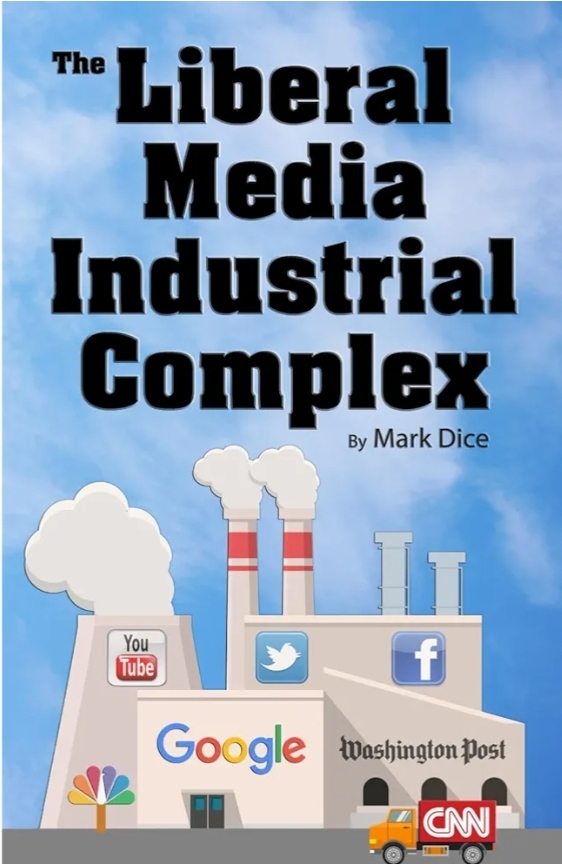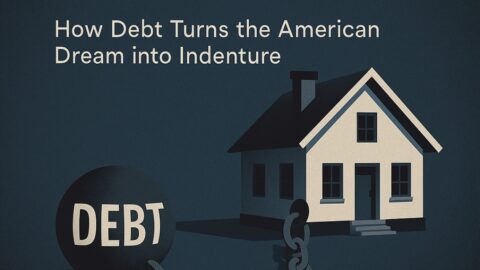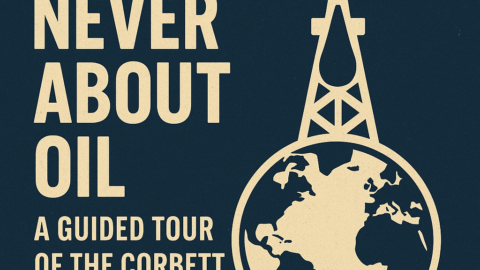Mark Dice’s The Liberal Media Industrial Complex delves into the powerful alliance between mainstream media, tech companies, and liberal political interests, which Dice argues work together to control narratives, shape public opinion, and suppress conservative viewpoints. The book builds on the concept of an “industrial complex” similar to the military-industrial complex, suggesting that modern media is not just a reporting body but an active participant in political and cultural warfare.
Key Themes and Ideas:
The Media as a Political Weapon:
- Dice claims that the mainstream media has evolved into a propaganda tool for liberal ideologies, promoting progressive narratives while actively working to undermine conservative voices. He argues that instead of reporting facts, media outlets have become political weapons that shape public perception and drive a specific agenda.
- He explores how media companies selectively choose which stories to report on, how they frame those stories, and how they influence elections, public policies, and social movements to benefit liberal causes.
Tech Companies and Censorship:
- Dice addresses the role of Big Tech companies like Google, Facebook, Twitter, and YouTube in controlling the flow of information. He discusses how these platforms use algorithms, shadow-banning, and outright censorship to suppress conservative content and amplify liberal perspectives.
- He argues that social media platforms, in collusion with mainstream media, work to silence dissenting voices, labeling conservative opinions as “misinformation” or “hate speech” to justify their removal.
The Rise of Fake News:
- The book critiques the phenomenon of fake news, where media outlets deliberately distort facts or publish misleading stories to push political agendas. Dice examines high-profile instances where major news networks have been caught promoting false information to sway public opinion, especially against conservative figures like Donald Trump.
- Dice suggests that the term “fake news” itself has been weaponized by liberal media to dismiss any criticism or challenge to their narratives.
Media Bias and the 24/7 News Cycle:
- Dice outlines the pervasive bias in mainstream media, explaining how even subtle editorial choices—like the way headlines are written or which guests are invited on talk shows—contribute to a distorted portrayal of events.
- He critiques the 24/7 news cycle for prioritizing sensationalism and drama over truth, often spreading panic or outrage to keep audiences engaged. This, according to Dice, not only misinforms the public but also deepens political divisions.
Hollywood and Entertainment Industry’s Role:
- Dice argues that the entertainment industry plays a crucial role in shaping cultural and political ideologies. Hollywood, he contends, is dominated by liberal elites who use movies, television shows, and celebrities to promote progressive values, from gender politics to climate change.
- He discusses how political messaging in entertainment is becoming more overt, with actors, directors, and musicians increasingly using their platforms to push specific political narratives, often in alignment with the media.
Cancel Culture and the Silencing of Dissent:
- A key focus of the book is on cancel culture, where individuals who express views outside the accepted liberal orthodoxy are publicly shamed, de-platformed, or fired from their jobs. Dice sees this as a deliberate tactic by the liberal media and their allies to intimidate and silence those who challenge the prevailing narratives.
- He provides examples of public figures, intellectuals, and everyday citizens who have been “canceled” for voicing conservative or alternative opinions, showing how the media amplifies these campaigns to enforce ideological conformity.
Media’s Role in Elections:
- Dice discusses how the liberal media plays a significant role in influencing elections, particularly by manipulating the coverage of political candidates. He points to the 2016 U.S. presidential election as a turning point, where mainstream media outlets were overwhelmingly biased against Donald Trump, yet failed to predict or prevent his victory.
- He also examines the 2020 election, accusing the media of acting as a political arm of the Democratic Party by giving favorable coverage to Joe Biden while relentlessly attacking Trump.
Fact-Checkers and Information Control:
- The rise of fact-checking organizations is another area of concern for Dice. He argues that fact-checkers are not neutral arbiters of truth but are often politically motivated entities that selectively target conservative content for “correction” while ignoring similar issues in liberal reporting.
- Dice claims that fact-checking has become another tool of information control, used to discredit certain viewpoints and reinforce the narratives preferred by the liberal establishment.
Manipulation of Social Movements:
- Dice critiques the media’s coverage and promotion of social movements like Black Lives Matter, climate change activism, and gender identity politics, arguing that these movements are often co-opted by liberal elites to push broader political agendas.
- He suggests that the media portrays these movements as grassroots and organic, when in reality, they are heavily supported and promoted by corporate interests, liberal politicians, and globalist organizations.
Monopolization of News Outlets:
- Dice highlights the consolidation of media ownership, where a few large corporations control the majority of news outlets. He argues that this leads to a monopoly on information, with the same liberal narratives being pushed across multiple platforms, making it difficult for alternative viewpoints to break through.
- He discusses how this consolidation allows for more effective coordination between media outlets and liberal political forces, creating a unified front that drowns out dissent.
Strategies for Fighting Back:
- In the later chapters, Dice offers suggestions on how to counter the liberal media industrial complex. He emphasizes the importance of supporting alternative media outlets, independent journalists, and platforms that promote free speech and diversity of thought.
- Dice also encourages readers to be more discerning consumers of news, to fact-check stories themselves, and to challenge the narratives presented by mainstream media outlets.
Mark Dice’s The Liberal Media Industrial Complex is a critical examination of how the media, in partnership with tech companies and liberal elites, shapes public perception and influences political outcomes. The book argues that the mainstream media is no longer an impartial institution but a powerful political entity that promotes progressive values while suppressing conservative ideas. Dice urges readers to question the media’s motives, seek out alternative sources of information, and resist the growing influence of what he sees as a coordinated effort to control public discourse.






